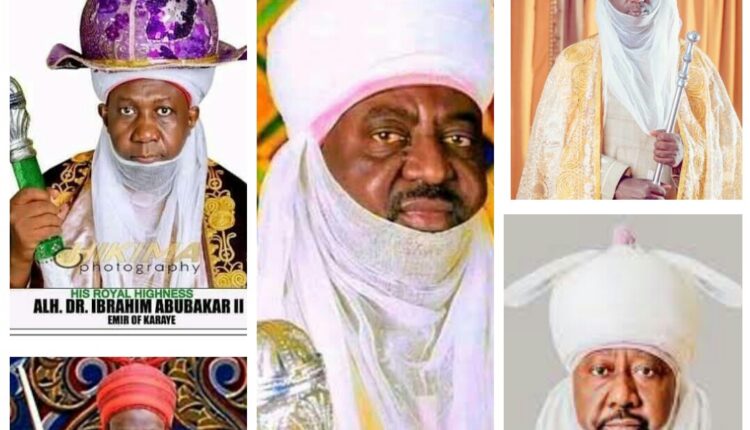After amendment of Kano Emirates Council Law, what next?
In a significant legislative development, the Kano State House of Assembly has commenced the amendment of the Kano Emirate Law.
It scaled through the first reading at the House of Assembly on Wednesday.
The motion, presented by the House Majority Leader and representative of Dala constituency, Lawan Hussein Dala, received overwhelming support from a large majority of the House members. This decision has sparked widespread interest and debate, given the historical and cultural implications for the state.
The context of this legislative move is rooted in a complex web of local politics and traditional authority.
In recent times, there has been a considerable push from some factions within Kano for the reinstatement of the dethroned 14th Fulani Emir of Kano, Muhammadu Sanusi II. Sanusi’s removal and the subsequent reorganization of the Kano emirate structure have been contentious issues, dividing public opinion sharply.

Read Also:Amidst tight security, Kano Emirates Council law scales first reading
On the other side of the debate, there is substantial opposition to the agitation for Sanusi’s reinstatement. Many support the current structure, which includes the creation of four new emirates—Bichi, Rano, Karaye, and Gaya—established during the administration of former Governor Dr. Abdullahi Umar Ganduje.
Proponents of the new emirates argue that this reorganization has helped decentralize power and promote development in these regions, fostering a more inclusive governance structure.
The proposed amendment by the Kano State House of Assembly thus comes at a critical juncture. The motion’s unanimous approval indicates strong political will within the Assembly to address the ongoing disputes surrounding the emirate system. However, it also raises several questions about the future of traditional leadership in Kano.
Foremost among these concerns is the potential impact on unity and peaceful coexistence within the state. Kano has a rich history of cultural and religious harmony, and any disruption to this balance could have far-reaching consequences. The amendment’s eventual outcome could either mend or further exacerbate the existing divisions.
Read Also:Primary 1,2,3 takes lessons at a time in one class, 4,5,6 in another in Kano community school
Observers and stakeholders are keenly watching how this legislative process unfolds. Will the amendment pave the way for a compromise that acknowledges both the historical significance of the emirate institution and the modern demands for more equitable governance? Or will it deepen the rifts, leading to further agitation and possibly unrest?
Whatever the case, the priority remains the unity and peace of Kano State. The legislators’ decision will likely set a precedent for how traditional and modern governance structures can coexist in a rapidly changing socio-political landscape. The Kano State House of Assembly’s action reflects a broader trend of reassessing traditional institutions in Nigeria, balancing respect for heritage with the need for progress and inclusivity.
Read Also:SolaceBase Data: In three months, Northwestern States received N188.8 bn as LGCs allocation
As Kano navigates this critical period, the hope is that the eventual outcome of the amended Kano Emirate Law will contribute to a more united and peaceful state, ensuring that the rich cultural tapestry of Kano remains intact while addressing contemporary governance challenges.



Comments are closed.